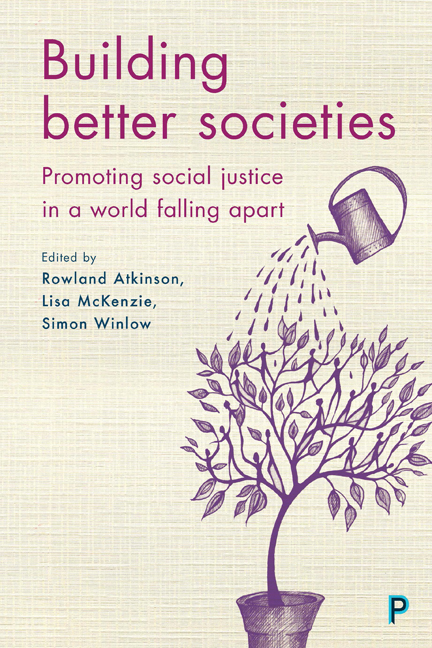Six - In defence of the public city
Published online by Cambridge University Press: 05 April 2022
Summary
Introduction
If we want to understand how to create better societies our thinking must inevitably touch on the predominant locus of human settlement and organisation – the city. In 2006 UN-Habitat, the United Nations’ urban programme, announced that the majority of the world's population now live in cities (UN-Habitat, 2006). In doing so they underlined the common perception that global life in the 21st century is predominantly urban. As a consequence, it has become common to claim that we live in an ‘urban age’. While scholars have questioned its city-centric premise, what might be described as the ‘urban age thesis’ expresses a widespread perception that global urbanisation represents an epochal shift in the nature of human settlement (Brenner and Schmid, 2014). Global urbanisation could thus be described as a process of structural transformation on a planetary scale, the emergence of a distinctive global condition characterised by agglomerations of urban fabric.
What characterises this urban shift? At the heart of urbanisation – as urban theorist Louis Wirth noted long ago – are density and plurality. Urban life is characterised by encounters with others who are different to us. Density of population and interconnection encourage ever-greater numbers of such encounters. The spreading of the urban fabric and the swelling of the populations dwelling in its spaces or connected by its infrastructures raise the question of how we negotiate the diversity of social encounters that city life generates. At the heart of urbanisation there is thus a profoundly social question about the ways in which we encounter, are connected to, and live with, others. Ultimately, this question asks us to consider how we can co-exist with others, in spaces of close proximity and, frequently, significant inequality. The prospect of a global urban condition invites us to speculate on the nature of the prosocial and whether, in fact, we may find this in the world's cities.
The city faces many challenges to its social fabric, many ways in which encounters with others can be disrupted and collective solutions for co-existence avoided by reticent national and local political actors. Whether it is the erosion of traditional commitments to collective goods as part of austerity programmes, or the insecurity of land tenure and provision of services in the Global South, the various negotiated settlements that support a sense of social collectivity in the city are often precarious.
- Type
- Chapter
- Information
- Building Better SocietiesPromoting Social Justice in a World Falling Apart, pp. 67 - 80Publisher: Bristol University PressPrint publication year: 2017



